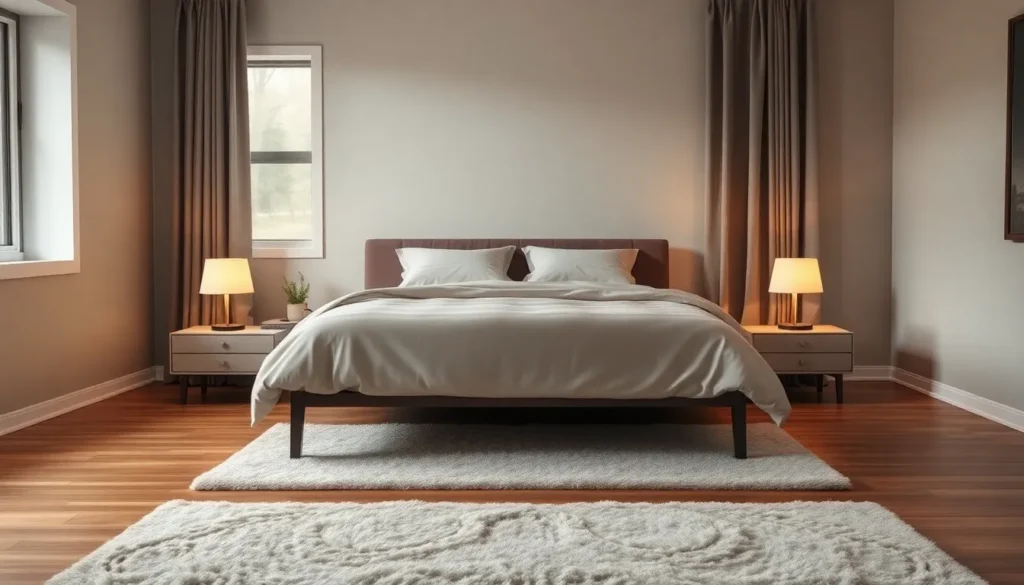In a world where everyone seems glued to their screens and caffeine flows like water, saying good night often feels like a mere formality. But have you ever considered the untold power of a truly restful sleep? It’s not just about closing your eyes: it’s about recharging like your phone on a low battery warning. Imagine waking up vibrant, energized, and ready to take on the day, all because you took those few magical hours of the night seriously. So, let’s jump into the realm of sleep and figure out how to make your nightly escape both enjoyable and restorative.
Table of Contents
ToggleThe Importance Of A Good Night’s Sleep

As the saying goes, “You snooze, you lose.” In reality, it’s quite the opposite. A good night’s sleep is the cornerstone of good health and well-being.
Benefits Of Quality Sleep
The perks of quality sleep stretch far beyond just feeling cranky on a Monday morning. Research reveals that adequate sleep contributes to better physical health, including improved heart health, a stronger immune system, and enhanced cognitive function. In essence, those extra hours of shut-eye help the body rejuvenate, making it ready for the demands of the day ahead.
Understanding Sleep Cycles
Understanding sleep cycles is like an enchanting tour through a hotel of dreams. On average, adults experience about five to six cycles per night, each lasting roughly 90 minutes. These cycles include several stages, from light sleep to deep sleep and REM, and each stage serves its specific purpose in restoring the body and mind. Ignoring these cycles can mean waking up in the wrong stage, leaving one feeling disoriented and tired. In short, a complete cycle isn’t just a luxury: it’s a necessity for optimal health.
Common Sleep Disorders
When counting sheep turns into an Olympic sport, it might be time to check if a sleep disorder is lurking around. Sleep disorders affect millions, often brushing off the importance of addressing them.
Insomnia, sleep apnea, restless leg syndrome, and narcolepsy are just a few culprits that wreak havoc on restorative sleep. These disorders can lead to fatigue, irritability, and even long-term health consequences if left untreated. It’s crucial for individuals experiencing persistent sleep issues to explore potential underlying causes with healthcare professionals.
Tips For Achieving Restful Sleep
Achieving restful sleep often requires more than just hitting the pillow.
Creating A Sleep-Friendly Environment
First things first: environment matters. A bedroom should be a sanctuary. Dim lights, comfortable bedding, and cooler temperatures all contribute to quality sleep. Consider using blackout curtains and white noise machines if external disturbances are a problem. Simply put, the right atmosphere can work wonders for sleep quality.
Establishing A Bedtime Routine
Developing a soothing bedtime routine is another key to unlocking the door to sleep. Engaging in relaxing activities before bed, such as reading a book, meditating, or taking a warm bath, can signal to the body that it’s time to wind down. Consistency plays a massive role here: going to bed and waking up at the same time daily helps reset the internal clock.
Lifestyle Changes For Better Sleep
To truly prioritize sleep, consider it as paramount as your morning coffee.
The Connection Between Diet And Sleep
Surprisingly, what goes into the body during the day can significantly affect sleep at night. Foods rich in magnesium, like leafy greens, nuts, and seeds, can promote relaxation and improve sleep quality. On the flip side, heavy meals, caffeine, and alcohol close to bedtime can disrupt sleep patterns. Balancing diet with a focus on sleep can be a game changer.
Managing Stress And Anxiety For Improved Sleep
Stress and anxiety can play the role of unwanted roommates when you try to fall asleep.
Natural Remedies For Promoting Sleep
Incorporating stress-relief techniques into daily life can create a calm mind at bedtime. Activities such as yoga, deep breathing, or journaling allow for the release of tension and can pave the way for peaceful slumber. Natural supplements like melatonin or herbal teas, like chamomile or valerian root, may also offer help. But, always consult healthcare providers before delving into natural remedies.
When To Seek Professional Help
If a good night’s sleep continues to elude even though making lifestyle adjustments or creating a cozy sanctuary, it may be time to consult a professional. Persistent sleep issues warrant an examination and tailored treatment. Options such as cognitive behavioral therapy for insomnia (CBT-I) or sleep studies can identify and address underlying issues effectively.




